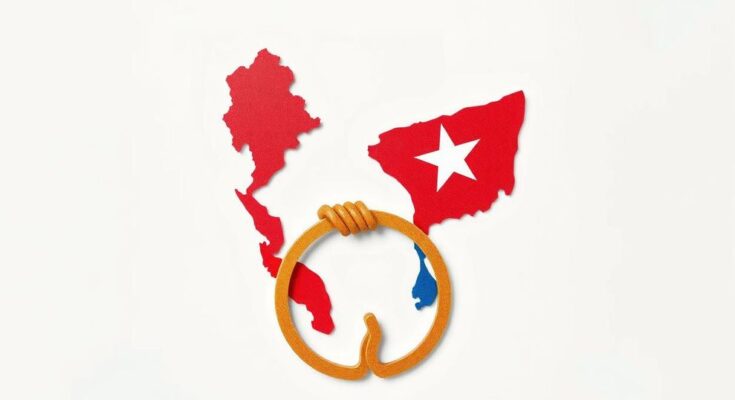East Timor’s anticipated accession to ASEAN offers a unique chance to influence the bloc’s stance on Myanmar, particularly in advocating for human rights and accountability. With a history of overcoming oppression, East Timor can act in solidarity with Myanmar’s pro-democracy movement. By referring Myanmar’s situation to the ICC, it could mark a formidable shift in ASEAN’s policy and strengthen regional justice initiatives.
East Timor stands poised to enter the Association of Southeast Asian Nations (ASEAN) this year, a historic development that could resonate beyond its borders. While the economic motives for joining ASEAN remain clear, East Timor’s membership presents an opportunity to infuse the bloc with a strong moral and democratic perspective, distinct from many of its regional counterparts.
The accession of East Timor raises expectations for its role in addressing human rights issues within ASEAN, particularly concerning Myanmar. Following the military coup in Myanmar in 2021, ASEAN adopted the Five Point Consensus aimed at restoring peace but has fallen short due to continued violence and a lack of decisive action. East Timor, with its own history of overcoming oppression, can advocate for a coherent strategy towards Myanmar, thereby reinforcing its identity as a liberal democracy.
Having experienced decades of brutal military rule, East Timor relates intimately to Myanmar’s struggle for democracy and self-determination. The Timorese government has a unique opportunity to support Myanmar’s National Unity Government (NUG), which seeks accountability from the International Criminal Court (ICC) for atrocities committed since 2002. As one of the two ASEAN members of the ICC, East Timor is strategically positioned to advocate for an investigation into these crimes.
Referring the matter to the ICC could represent a vital shift in ASEAN’s approach to Myanmar’s crisis, fostering accountability amidst escalating violence. Such an initiative would align East Timor’s policy with its own journey for independence, allowing it to extend solidarity toward the Myanmar populace. This move could also enhance international attention on the junta’s ongoing human rights abuses, including the genocide against the Rohingya.
Critics may doubt a smaller nation’s ability to influence a complex situation like Myanmar’s, but history demonstrates that smaller states can possess substantial leverage in international relations, particularly through moral clarity rather than the power dynamics of larger nations. This has been observed through various cases, such as The Gambia’s advocacy for the Rohingya and Liechtenstein’s efforts concerning UN Security Council veto powers.
As major powers retreat into isolationism, East Timor’s leadership in the ICC referral process could symbolize a shift toward global justice and accountability. By recalling the international support received during its struggles for independence, East Timor could now return the favor and mobilize international forces against the Myanmar military regime. The moment of accession to ASEAN thus presents a transformative opportunity for the country to assert its values.
Ultimately, East Timor’s entry into ASEAN could be pivotal—not merely as a formal diplomatic gesture, but as a meaningful commitment to fostering justice and human rights in the region. With this initiative, East Timor could inspire ASEAN to transform into a regional advocate for democracy, fully acknowledging and addressing the suffering within its member states.
East Timor’s accession to ASEAN represents a significant opportunity for the nation to influence regional politics and advocate for accountability in Myanmar. Its historical context, marked by resilience against oppression, positions it uniquely to promote human rights within the bloc. By leveraging its membership to push for ICC involvement in Myanmar, East Timor could catalyze a broader movement for justice and democratic reform in Southeast Asia.
Original Source: www.aljazeera.com




